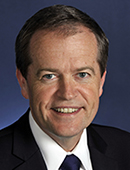First, there was the UK ‘In or Out’ Referendum on European Union membership on June 23, 2016. Despite the support of business, media, major political parties, and the UK Prime Minister himself, the ‘Leave Campaign,’ popularly known as ‘BREXIT,’ prevailed. Immediately, the pound sterling dropped to a 30 year low, the stock market fell, and the global economy was shaken.
On the other side of the world, Australia went to the polls on July 2nd in a ‘double-dissolution’ election. This means that all seats in the Australian parliament, the House of Representatives and the Senate, were up for grabs. By all accounts, the fact that the election was on a knife’s edge for days afterwards, and the prospect of continued political instability, does not bode well for the ‘land down under.’
 The ruling Liberal-National Coalition government, led by Prime Minister Malcolm Turnbull, asked to be returned to power for a second term. Mr. Turnbull, who was not originally elected as PM, successfully unseated the previous Liberal PM, Tony Abbott, in a party-room ballot in September 2015. It is agreed that Mr. Abbott, who rode to power with a convincing win in 2013, had consistently poor poll numbers and his party colleagues, in a panic, replaced him with Turnbull before the 2016 election.
The ruling Liberal-National Coalition government, led by Prime Minister Malcolm Turnbull, asked to be returned to power for a second term. Mr. Turnbull, who was not originally elected as PM, successfully unseated the previous Liberal PM, Tony Abbott, in a party-room ballot in September 2015. It is agreed that Mr. Abbott, who rode to power with a convincing win in 2013, had consistently poor poll numbers and his party colleagues, in a panic, replaced him with Turnbull before the 2016 election.Perhaps that was not such a good idea after all. The Coalition government under Turnbull did not campaign on its strengths: Border protection, stopping the boats with illegal migrants, national security, economic management, counter-terrorism, and warning the electorate of the opposition’s plan to remove negative gearing off investment properties. Instead, Turnbull, who is a ‘social progressive’ (abortion, republic, same-sex marriage), led a party full of traditional values / social conservatives. These people felt alienated and angry by a prime minister they did not even elect, whose values they do not share, and gave their votes to minor parties. This failure to capitalise on their strengths, win the conservative voter base, and unite the party, cost Coalition dearly.
Now that Mr. Turnbull has lost most of the seats his party won in 2013 under Mr. Abbott, any government that is formed will be weak and face obstructionism in the Senate. Serious and necessary reform will be postponed yet again. Gridlock is a real possibility.
What’s worse, Australia faces the prospect of losing its Triple A credit rating. This means the cost of borrowing and doing business will go up; which is not a good thing during times of economic and political uncertainty. If the Labor Opposition under Bill Shorten were to come to power, the prospect of more borrowing, spending, and deficit, places the nation at serious risk of losing this coveted rating.
How did Australia, with its well earned reputation for long-term political stability, get into such a situation? To the world, Australia is known for its kangaroos, koalas, beach lifestyle, as well as freedom and prosperity. No wonder it was one the favoured havens for migrants from around the world. Yet this reputation, like the credit-rating, is under threat. After 11 and 1/2 years under Liberal Prime Minister John Howard (1996-2007), Australia entered into politically uncharted waters. In five years, there has been 5 prime ministers in 5 years, yet only twice was the prime minister change by election. The other 3 times the PM was replaced their own party. Canberra has become the ‘coup capital’ of the western world. This is not a recipe for future stability and success.
There is a simple reason why Australia, like other western nations, is facing continued political instability. In Part 02, we will find out.

